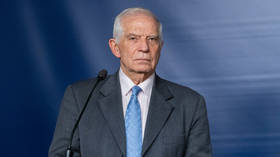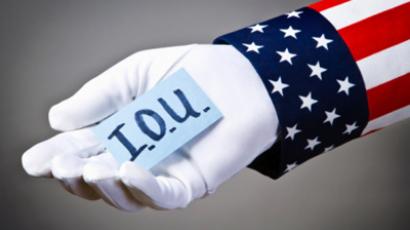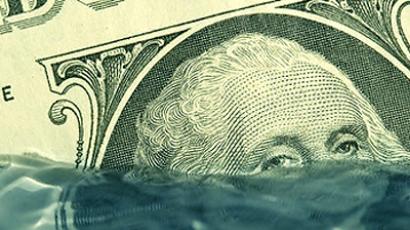US needs economy shock Russian-style
The US, which once advised practically all countries worldwide on how to build economic prosperity, now struggles to answer the serious questions hanging over its own financial future - right after barely missing a technical default.
America has just had to swallow a bitter pill. The signing into law of an emergency budget deal has left both of American dominant political powers at sword points, fuelling months-long political debates on how to reign in the country’s astronomical national debt.“Congress has now approved a compromise to reduce the deficit and avert a default that would have devastated our economy,” President Barack Obama proclaimed, leaving many in doubt as to whether this will help the patient’s recovery, or will instead prove to be a poisoned chalice.Blogger Danny Schechter says ordinary people will lose out in the end.“Our economy is not growing at all! In fact unemployment remains very high, foreclosures remain very high – no recovery is taking place. We are on a suicide mission. We [issue a] mayday,” Schechter says, “gesturing to a kind of deal with that, at the same time making impossible for the government to play any role to save the economy that is going down rapidly.” At some point, shortly after the collapse of the Soviet Union, Russia became an American laboratory for neo-liberal economic theories. But these days Washington is reluctant to take its own advice given Russia during its worst economic crisis. Obviously, giving advice is one thing, listening to it is another.“Live within your means! The same advice they gave us, without knowing our economic and social realities,” says economist Viktor Geraschenko, who headed Russia’s Central Bank in the immediate post-Soviet period. The year 1992, when he took up the job, saw the worst four-digit inflation in Russia’s history. The USSR came to an end as the communist economy was in collapse, but there was nothing to replace it and move to a market economy.“The situation was disastrous! Foreign debt was over a US$100 billion, while gold and foreign currency reserves were less than $50 million, which effectively means nil!” claims economist Vladimir Mau, who in the 1990s was the deputy of Yegor Gaidar, the economist who introduced the so-called, “shock therapy” in Russia. Pivotal reformists of the then-government remember how, on America’s advice, the “shock therapy” was applied. The markets might have got the therapy, but it was Russia’s citizens who got the shock. Industrial closures and mass poverty led to unprecedented death rates, birth decline and suicide levels, all in all costing Russia millions of lives.“As one politician said, to move from a market to a communist economy is easy. It’s like trying to turn your aquarium into fish soup, but to do the opposite is much harder, it’s like trying to revive the dead fish!” Vladimir Mau explains.It took modern Russia a decade to revive its “aquarium” and return to economic growth, transforming the country’s fortunes after the disaster of the 1990s in which American experts played a key role. If destruction had been the aim of the visiting shock therapists, they could hardly have done a better job. But with the US now the patient in dire need of economic surgery, the world will soon see if the medicine they thought was good enough for post-Soviet Russia will be fit for America.














